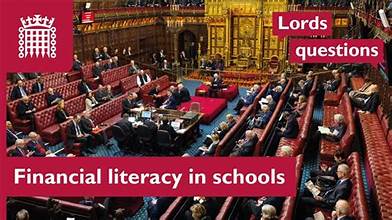
In today’s fast-paced and ever-changing world, financial education stands as a beacon of empowerment for individuals of all ages. Yet, despite its undeniable importance, the integration of financial literacy into school curriculums remains a challenge in many parts of the globe. At the forefront of this issue is the question: How can we equip our youth with the necessary knowledge and skills to navigate the complexities of personal finance and secure their financial futures?
Understanding the Need
Financial literacy is more than just balancing a checkbook or understanding basic math concepts; it encompasses a comprehensive understanding of budgeting, saving, investing, and responsible borrowing. Without adequate financial education, individuals may fall prey to predatory lending practices, accumulate unmanageable debt, or struggle to plan for retirement.
The Role of Schools
Schools serve as the cornerstone of education, providing students with the tools and knowledge they need to succeed in life. By incorporating financial education into the curriculum, schools have the opportunity to instill crucial money management skills in students from an early age.
The Benefits of Early Intervention
Research has shown that early exposure to financial concepts leads to better financial decision-making later in life. By introducing financial literacy programs in elementary and secondary schools, we can empower students to make informed choices about their finances and lay the foundation for long-term financial well-being.
The Importance of Government Support
While the responsibility for financial education often falls on schools, government support is essential in driving widespread change. By implementing policies that mandate financial literacy education in schools and providing funding for teacher training and resources, governments can ensure that all students have access to high-quality financial education.
Overcoming Challenges
Despite the clear benefits of financial education, several challenges must be overcome to achieve widespread implementation.
Lack of Resources
Many schools struggle with limited resources, making it difficult to implement financial literacy programs effectively. To address this challenge, partnerships between schools, businesses, and community organizations can provide additional support and resources.
Resistance to Change
Implementing financial education programs may face resistance from educators, administrators, and parents who prioritize traditional academic subjects. To overcome this resistance, it’s crucial to emphasize the real-world relevance of financial literacy and its impact on students’ future success.
Looking Ahead
As we look to the future, it’s clear that financial education must be a priority in schools worldwide. By equipping students with the knowledge and skills they need to make informed financial decisions, we can empower them to build a secure and prosperous future for themselves and their communities.
In conclusion, the integration of financial education into school curriculums is not just a matter of academic necessity; it’s a critical step towards ensuring the financial well-being of future generations. With government support, community involvement, and a commitment to overcoming challenges, we can unlock the full potential of financial education and pave the way for a brighter financial future for all.



